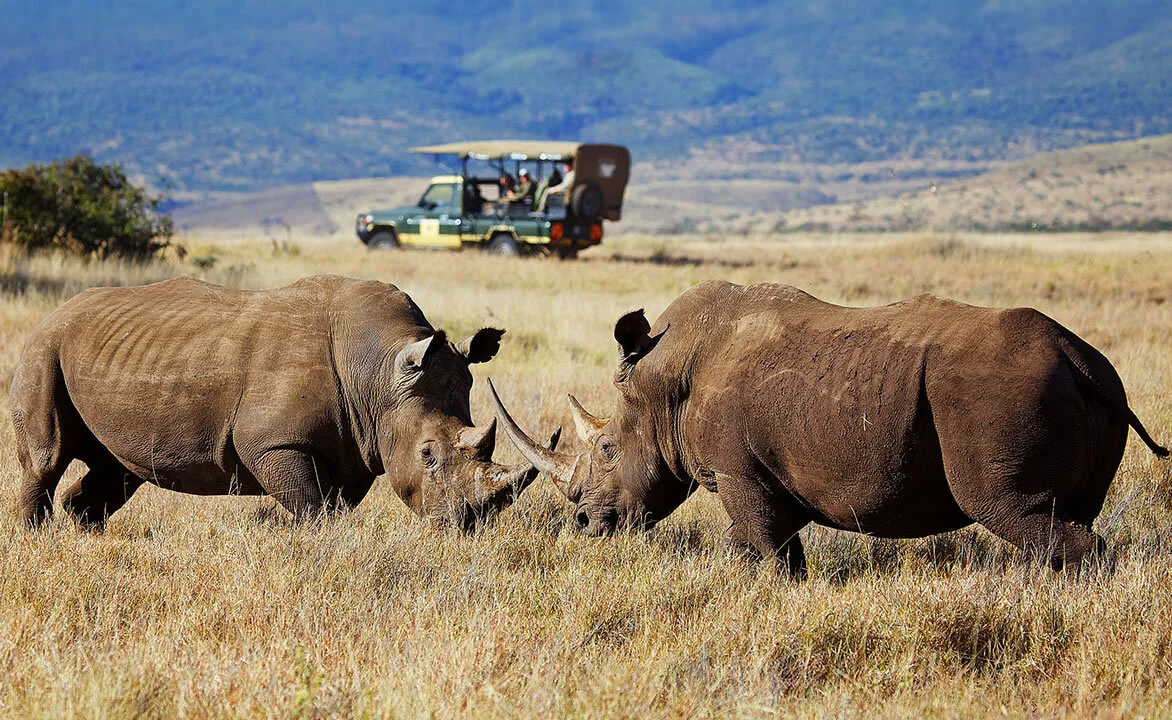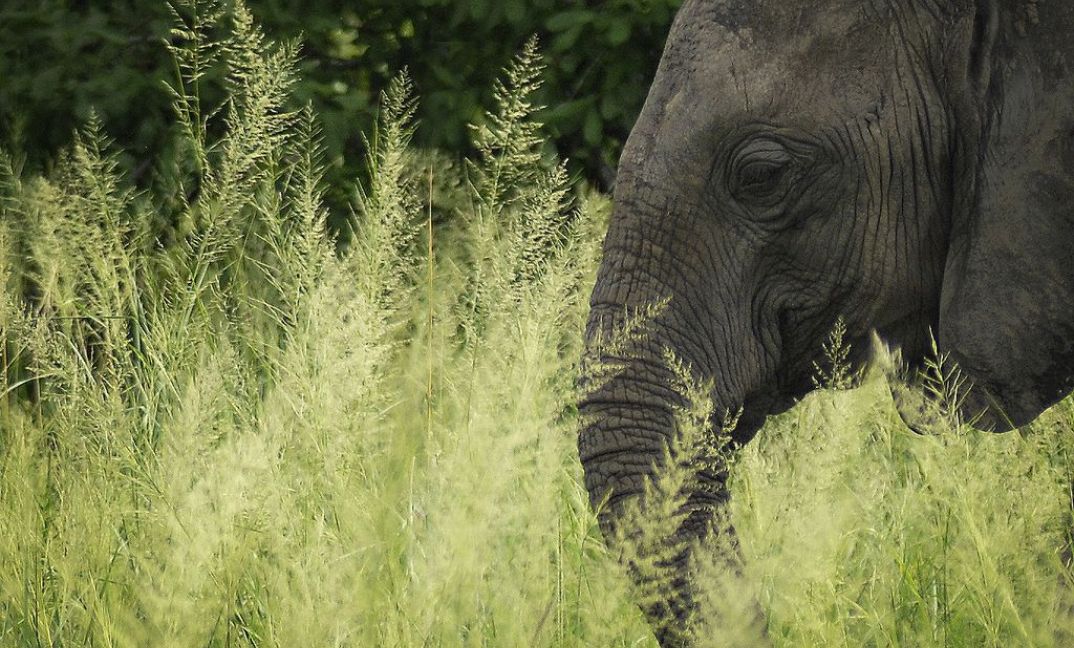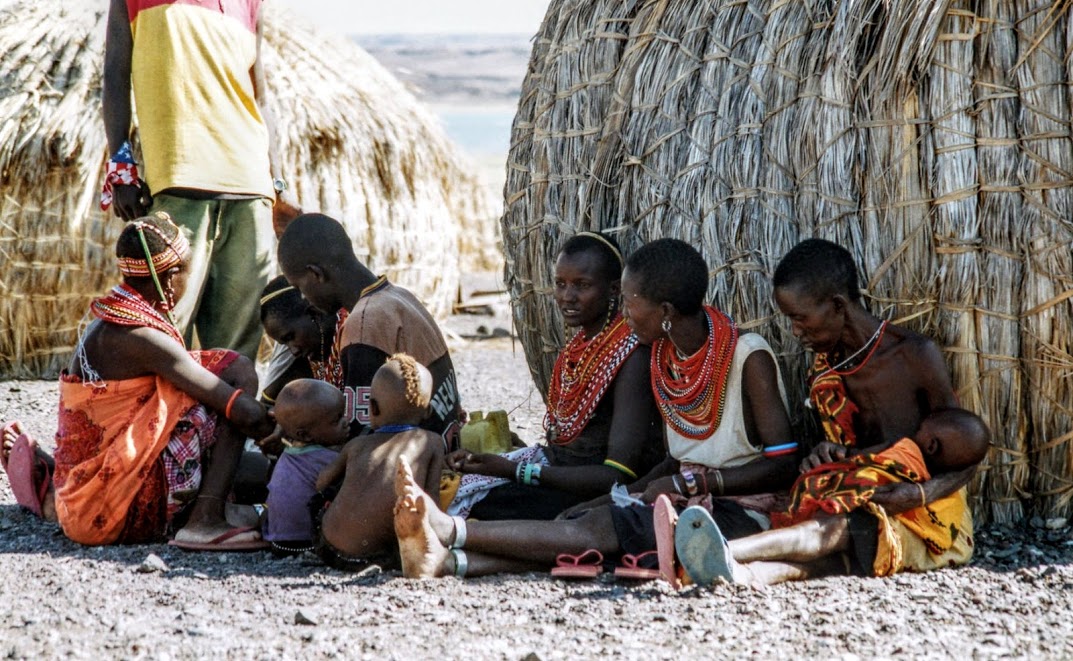Tour Highlights 3 days Samburu safari
Day 1: Transfer and Afternoon game drive Lewa Conservancy
Day 2: Morning game drive and Samburu Village tour
Day 3: Transfer to Nairobi
ITINERARY
Day 1: Transfer from NAIROBI and afternoon game drive
After an early breakfast your adventure will start with a pick up from your hotel in Nairobi by our tour guide. On this journey you may choose to tour Karatina open market. This visit brings you face to face with East Africa’s largest open-air retail outlet which is majorly known for a variety of goods, ranging from fresh fruit and vegetables, kiondos (baskets made from sisal), all types of cereals, and many other market goods with stalls that can hold up to 3,000 traders. You will spend 30 minutes at this stop to get a feel of the local market activities before embarking on the drive to Nanyuki for lunch at Ibis Hotel. Have lunch and proceed to Lewa Wildlife Conservancy. This is home to some of the amazing wildlife where a 2 hour game drive will give you the opportunity to see rhinos, the Grevy’s zebras, elephants and many other animals. You will then drive to Samburu National Reserve, reaching in time for your check-in, dinner and overnight stay.
Day 2:Morning game drive and Samburu village tour
Your day starts with an early breakfast at the camp. You will leave for an extensive game drive in the reserve. The park exploration will bring you close to the wildlife including leopards, lions, hyenas, cheetahs, antelopes, among others. Samburu’s diverse wildlife tend to cluster close together near the life-giving Ewaso Ng'iro River which meanders through the reserve, leaving a trail of lush pasture for the reserve’s thousands of wild game species. After your game drive, you will head back to your camp for lunch and thereafter a cultural tour experience at Samburu village where you will interact with and learn about the fascinating local people in this area. The cattle, goat and camel-herding Samburu people are closely related to the Masai and they also wear a similar traditional dress of blankets and beads and maintain a very similar lifestyle. You will discover more about their nomadic way of life, and participate in the numerous activities that define a typical Samburu homestead. These include, making traditional ornaments and milking goats/ cattle. The activities at this stop last for 2 hours, after which you will return to the camp in time for your dinner and overnight.
Day 3: Samburu-Nairobi
On your last day, you will have breakfast at the camp and prepare for your departure at 8:30 am by road en route to Nairobi. You will branch off at Nanyuki Sports Club for lunch and thereafter drive to Nairobi for overnight stay at your hotel or airport for your flight back home.
ACTIVITIES
Karatina Market
Karatina Market, the largest open-air market in Kenya and in East Africa, is designed to respond to modern world-class trading and environmental needs. It does this by providing facilities such as stalls, cold/chiller rooms, water storage facilities, parking areas, eateries, waste management areas, ablution blocks, among other facilities. This Large market holds up to 3,000 traders.
Karatina town is located two hours away from Nairobi. The retail market has been under construction for about three years to make sure it is up to date and well organized. While there, be sure to get all types of peak-harvested fruits, garden fresh vegetables, cereals and ciondos. The latter are baskets made from sisal. They are long lasting baskets that will give you service for the longest time you can imagine. You will find many other market goods in abundance.
Nanyuki Town
Nanyuki, the market town of Laikipia county of Kenya, lies in the northwest of Mount Kenya. The town is also known as a gateway to Mount Kenya and the wilderness of Mount Kenya National Park. The main airfield (airbase) of the Kenya Air Force was founded in 1907 by the British settlers. Some of their descendants still live in and around the town.
The Equator passes through the southern part of Nanyuki. One crosses it when approaching Nanyuki to be sure to be photographed here. You will meet some people who are usually at hand to show the supposed effect of the Coriolis force, which they say makes draining water swirl clockwise or anticlockwise depending on whether one is in the northern or southern hemisphere. This effect, however, is detectable only in the laboratory and so the "demonstrations" at the Equator are only but a pleasant diversion by the villagers.
There are several trails ascending the mountain, including the well-known Naro Moru and Sirimon routes. The park's wildlife includes leopards, giant forest hogs and more. In the northwest of Nanyuki, the plains and hills of the vast Laikipia Plateau are home to lions, elephants and the rare gravy's zebras.
Lewa Wild Life Conservancy
Lewa Downs, also known as Lewa Wildlife Conservancy, is one of today’s most successful conservancies in Africa. It offers an unforgettable combination of jaw-dropping scenery, superb game viewing, excellent hospitality, and conservation education. The conservancy, which was formed in 1995, is located in northern Kenya. This wildlife sanctuary incorporates the Ngare Ndare Forest thus covering over 62,000 acres.
Apart from its focus on the protection of black rhinos and gravy’s zebras, the conservancy sustains a multitude of other species including elephants, lions, cheetahs, giraffes and more.
The Conservancy also supports the community through programs in education, healthcare, water, micro-enterprises, and youth empowerment.
Samburu National Reserve
At the southeastern corner of the Samburu district, the Rift Valley Province lies the semi-desert Samburu National Reserve, named after the Samburu people who have lived in the area for many years. The word Samburu comes from a Maasai word samburr, which is a traditional leather bag for carrying honey and milk. Amidst the park flows the life-giving Ewaso Ng’iro River. It derives this name from a local language- and it means brown or muddy water, this river attracts a large population of Kenyan animals to the reserve. The unfenced park is relatively small in size compared to the other Kenyan parks such as Tsavo or Masai Mara.
The reserve has visible mountains surrounding it, and Koitogor and Ololokwe are the best for hiking and camping. Samburu National Reserve is an exceptional destination for a cultural visit, most specifically the Samburu village. The village hosts a considerable number of women and children. These all flee from or are survivors of various forms of atrocities that pause as risky to them, most of them being uncouth cultural norms.
Samburu has several exciting tourism activities such as game drives in the dusty roads, wild dog sightings, nature walks, sightseeing, birding, and hiking. Some of the locations for these activities include the first community-owned and managed Elephant Sanctuary in Africa: Reteti Elephant Sanctuary.
Samburu Umoja Village
Umoja is a Swahili word for ‘oneness.’
This village hosts over 70 women and 200 children. It was established in 1990 by a group of 15 women. The majority of residents are female survivors of rape, sexual violence victims and others who are fleeing from female genital mutilation, early marriages as well as other forms of violence against women, all of which are cultural norms among the Samburu.
Their women elders are said to have been able to legally own the entire village's land, thus securing its occupants from being displaced. The village is well guarded by a wall of thorns which enables them to run their own affairs without interference from men. Umoja was established following the patriarchal culture among the Samburu people that views women as property.
The enterprising women engage in beading artworks plus selling these beads and crafts. This enables them to earn a regular income that is used for providing food, clothing, and shelter for all. Despite the constant resistance received from local male-run tribal groups, the village has managed to continually grow.
The community leaders also run a tour campsite, which is a kilometer away by the river. Once in the village, the women will welcome you with a song and dance, inviting all the other women to join in the dancing and singing. You have an opportunity to explore their homes and learn all about their way of life. The visitors also have the chance to buy jewelry made by the women in the craft center.
GET OFFER
Please complete the following form so we can send you a personalized price!
SAFARI INCLUSIONS
Safari includes:
Transportation in a Tour Van/Landcruiser.
Service of an English-Speaking tour guide/Driver.
All activities mentioned in the itinerary
Accommodation on Full Board.
Entrance fees to all destinations as per the program.
Transfers to and from Airport/Nairobi
Safari Excludes:
All activities not mentioned in the program
International flights
Visas
Hotel fees before and after the safari
More tours








